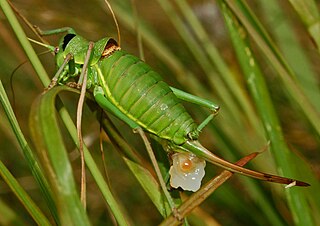
Apollo is one of the Olympian deities in classical Greek and Roman religion and Greek and Roman mythology. The national divinity of the Greeks, Apollo has been recognized as a god of archery, music and dance, truth and prophecy, healing and diseases, the Sun and light, poetry, and more. One of the most important and complex of the Greek gods, he is the son of Zeus and Leto, and the twin brother of Artemis, goddess of the hunt. Seen as the most beautiful god and the ideal of the kouros, Apollo is considered to be the most Greek of all the gods. Apollo is known in Greek-influenced Etruscan mythology as Apulu.

In Etruscan mythology, Charun acted as one of the psychopompoi of the underworld. He is often portrayed with Vanth, a winged figure also associated with the underworld.
In Etruscan religion, Fufluns or Puphluns was a god of plant life, happiness, wine, health, and growth in all things. He is mentioned twice among the gods listed in the inscriptions of the Liver of Piacenza, being listed among the 16 gods that rule the Etruscan astrological houses. He is the 9th of those 16 gods. He is the son of Semla and the god Tinia. He was worshipped at Populonia and is the namesake of that town.

Messapic is an extinct Indo-European language of the southeastern Italian Peninsula, once spoken in Apulia by the three Iapygian tribes of the region: the Messapians, the Peucetians and the Daunians. Messapic became extinct following the Roman conquest of the region. It has been preserved in about 600 inscriptions written in an alphabet derived from a Western Greek model and dating from the mid-6th to at least the 2nd century BC.

Kapampangan language is an Austronesian language, and one of the eight major languages of the Philippines. It is the primary and predominant language of the entire province of Pampanga and southern Tarlac, on the southern part of Luzon's central plains geographic region, most of whom belong to the Kapampangan ethnic group. Kapampangan is also spoken in northeastern Bataan, as well as in the municipalities of Bulacan, Nueva Ecija, and Zambales that border Pampanga. A few Aeta groups in Central Luzon's southern part also understand and even speak Kapampangan as well. The language is known honorifically as Amánung Sísuan.

Leontodon is a genus of plants in the dandelion tribe within the sunflower family (Compositae), commonly known as hawkbits.

The japygids are a taxon of hexapods, of the order Diplura, commonly known as forcepstails.

Amis is the Formosan language of the Amis, an indigenous people living along the east coast of Taiwan. Currently the largest of the Formosan languages, it is spoken from Hualien in the north to Taitung in the south, with another population near the southern end of the island, though the northern varieties are considered to be separate languages.
Parindjapyx is a genus of diplurans in the family Japygidae.

Ephippiger is a bush cricket genus described by Berthold in 1827, belonging to the family Tettigoniidae, subfamily Bradyporinae and tribe Ephippigerini.

Samoa competed at the 2015 Pacific Games in Port Moresby, Papua New Guinea from 4 to 18 July 2015. Samoa listed 405 competitors as of 4 July 2015. Eight competitors were qualified in two sports.
Parindjapyx chiorandoi is a species of forcepstail in the family Japygidae.
Parindjapyx crivellarii is a species of forcepstail in the family Japygidae.
Parindjapyx dessyi is a species of forcepstail in the family Japygidae.
Curius and Apuleius were chieftains of the Lusitanians, a proto-Celtic tribe from western Hispania. They were active at the last phase of the Lusitanian War.
The Ōtara-Papatoetoe Local Board is one of the 21 local boards of the Auckland Council. It is overseen by the Manukau Ward councillors.
The gens Javolena, occasionally found as Javolenia, was a minor plebeian family at ancient Rome. Few members of this gens appear in history, but two of them attained the consulship, one under Domitian, and the other in the time of Antoninus Pius.








